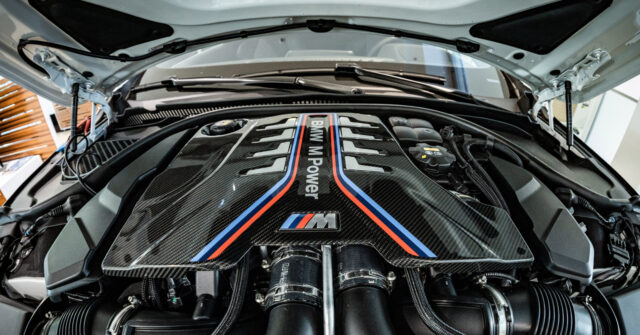European Union countries have agreed to end sales of CO2-emitting cars by 2035, although Germany has carved out its own exemption with e-fuel-powered cars not being part of the new policy.
EU member states agreed to phase out the sales of internal combustion engine (‘ICE’) cars by 2035 in a bid to conform with the bloc’s stated green politics ambitions, but Germany — whose economy is heavily focussed on the production of cars — has managed to find its own exemption to the rule by advocating for the sale of cars that run on so-called e-fuels.
E-fuels, such as e-kerosene, e-methane, or e-methanol are considered to be carbon-neutral as they are produced from captured CO2 from the atmosphere despite also giving off CO2 when they are used to power a basically otherwise normal ICE, Reuters reports.
EU climate policy chief Frans Timmermans commented on the new law, which was passed on Tuesday, saying, “The direction of travel is clear: in 2035, new cars and vans must have zero emissions.”
German transport minister Volker Wissing added that the compromise on e-fuels would “open up important options for the population towards climate-neutral and affordable mobility.”
Lawmakers at the European Parliament approved a measure to support the ban on sales of petrol and diesel cars by the year 2035 as the bloc doubles down on its green agenda. https://t.co/ACxmNMC2av
— Breitbart News (@BreitbartNews) June 10, 2022
So far, however, despite enthusiasm from car manufacturers who do not want their business models undermined by the expensive switch to batteries, e-fuels are not widely produced, with the first commercial e-fuels plant only opening in Chile in 2021.
Critics of e-fuels also argue that the process to create them is both intensive and expensive, particularly regarding electricity use. Others have stated that e-fuels should be used for other sectors more reliant on CO2-powered engines, including aircraft and other forms of shipping.
Following the acceptance of the new law, the European Commission is set to debate how e-fuel cars will operate within the EU, with some proposing that cars may have technology that will not allow them to start if they are filled with fuels such as diesel or petrol.
Despite Germany pushing slightly against the green agenda of the EU to protect its own massive automotive industry, some have claimed that the country is descending into an “eco-dictatorship” under Green Party economic minister Robert Habeck.
Prof. Manuel Frondel, a member of the Leibniz Institute for Economic Research Essen think-tank, stated this month, “Germany is on the way to eco-dictatorship,” and added, “I am appalled by Robert Habeck’s plans to ban [gas and oil] heating.”
Frondel’s comments were made in reaction to Habeck announcing that oil and gas heating would be banned in Germany from 2045.
Germany Becoming an ‘Eco-Dictatorship’ Under Green Minister, Professor Warnshttps://t.co/Io6zwfqszs
— Breitbart London (@BreitbartLondon) March 14, 2023
Follow Chris Tomlinson on Twitter at @TomlinsonCJ or email at ctomlinson(at)breitbart.com.


